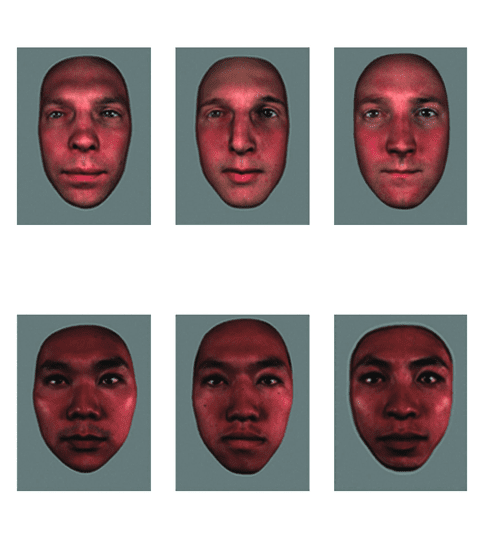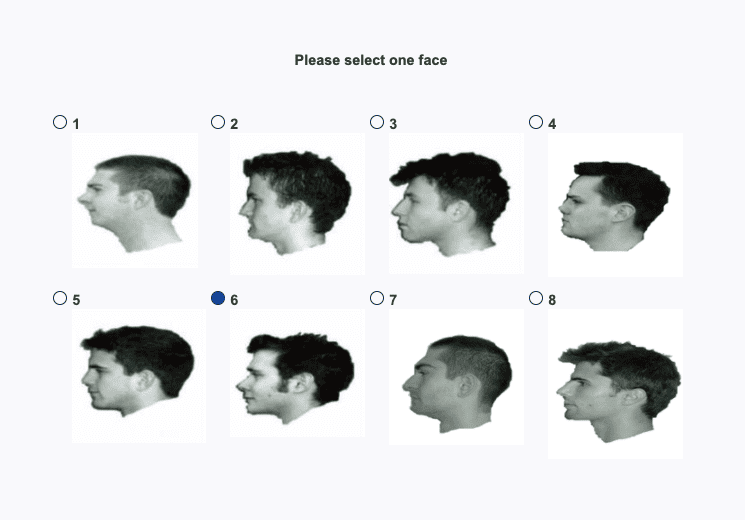There is no shortage of scientific facts that creep me the heck out – the natural world is full of endless weirdness that can really unsettle a person when you stop and think about it for too long.
If that seems like something you’d be into today, have we got a list for you – these 15 people are sharing the creepiest science facts they know, and they really are some doozies!
15. These scare the crap out of me.
The existence of prions.
The prion mode of action is very different to bacteria and viruses as they are simply proteins, devoid of any genetic material.
Once a misfolded prion enters a healthy person – potentially by eating infected food – it converts correctly-folded proteins into the disease-associated form.
To date, nobody knows quite how this happens
14. Excuse me, what?
There is something called “the squeeze,” where when people had old scuba suits with tubes, you could actually get sucked into that tube if the pressure was off.
You are literally shredded through your own breathing tube.
13. There are always more questions.
Humans are bioluminescent (nothing to do with body temperature).
We emit visible light that can be photographed in specific conditions.
But, this light isn’t visible to us. Which makes it a strange thing to have evolved, and begs the question
“what organisms is this light visible to, and why?”
12. Beware the bugs.
Doctors/ scientists are BARELY keeping up with the influenza virus. It keeps on mutating rapidly. It really wants to get inside you.
11. I hope to never encounter one.
Rogue black holes. There are black holes that just are floating around in space and potentially f*cking up solar system just by passing through it.
10. We could do it if we tried I bet.
That so many vegetables came from the same plant. Broccoli, kale, kohlrabi, Brussels sprouts, cabbage, etc.
They are, botanically speaking, the same species. Humans have just bred them to emphasize different traits (buds, leaves, tubers…)
Imagine if humans were as genetically flexible.
Imagine a person walking around with GIANT toes, but otherwise normal.
Actually, plant genetics in general is a weird, weird world.
9. No thank you.
Not exactly scientific or creepy but, it’s close enough and I want to contribute.
Mouth pipetting was a thing in labs in the 1980s. A pipette is, for simplicity sake, a glass straw that lab staff would use to transfer liquids. Now a days we use special bulbs, that when squeezed, would suck up the liquid for us. Kinda like a turkey baster or eye dropper.
Before we had these bulbs lab workers had to use their mouths to suck up the liquid. Which meant if they weren’t careful they’d get whatever they were sucking up in their mouth. I’m currently training to be MLAT and those fluids would usually be urine, liquid stool, sputum and so on.
8. It’s your brains world.
Your brain literally creates your own reality and your senses and body just go along with it.
7. You are a whole universe.
There is more micro organisms on your body than people in earth.
6. How is this a thing?
Also a lot of schizophrenics are pretty normal well adjusted people aside the schizophrenia, so like if you were sitting in your room and a dog floated in attached to a balloon or the number 7 started telling you you’re worthless at first you’re gonna get freaked out by it but once you confirm that it’s not there you’re going to realize “okay this is me”, it helps that a lot of hallucinations are recurring as well, so if you know they happen you can just tell yourself they’re not, even though everything in you is saying that’s not the case
It’s really weird but it’s fascinating
The really hard stuff is like extreme paranoia, I worked with a woman whose whole family basically was schizophrenic, her included, and there were a few times she’d say things like “you’re not hacking my phone right?” Or “the mayor is stalking me”, that kind of thing and for someone who has experienced similar paranoias (to a considerably lesser degree) I can understand that those aren’t really that easy to shake
5. This makes a lot of (creepy) sense.
Spider webs were used as bandages in ancient times.
My grandpa was from rural Eastern Europe and he told me about his grandma and mom using spider webs on wounds. It’s not even that ancient of a thing
4. It’s hard to wrap your mind around.
The way quantum mechanics works is pretty creepy to me for reasons I can’t exactly pin down.
Particles aren’t points, at least not that we can possibly ever observe. The best physical description of a particle’s position is a wave over at least a four-dimensional volume showing where it probably is. I say four-dimensional because there’s a non-zero time uncertainty as well. This isn’t a limitation on what we can observe, it’s an actual testable property of particles, that they don’t have exact positions, velocities, energies, times. When they’re “observed” by interaction, the wave collapses, which still doesn’t make it exact, just more likely to exist in a smaller space. The argument that there really is an exact point in there somewhere and it’s just always hidden from observation isn’t true; the Bell inequality proved that. For example, because of this uncertainty, it’s physically impossible to cool helium enough to freeze it at atmospheric pressure.
This uncertainty even applies to the vacuum. It can’t be at zero energy, because that would violate the uncertainty principle. So sets of virtual particles pop into existence in the vacuum and stick around for an incredibly short amount of time, given by the time uncertainty, before annihilating each other in a zero net energy process. This is, very simply put, how black holes hypothetically lose mass; pairs of virtual particles are spontaneously created near the event horizon, one enters, one escapes. The one inside annihilates a particle within, the one that leaves becomes real. Information is transported outside the event horizon in an incredibly obfuscated, but still existent, form, meaning information isn’t destroyed by black holes.
Then you get into the weird math. It starts raising questions about what “real” is. Can we say something’s real if it’s not testable, or is the math describing the situation the closest to “real” that we can get? For example, you could look at the predicted path for a particle. There’s a non-zero chance for it to take any path between two points. So you basically take all the possible paths, account for the probability that it takes that path, add ’em all up, and you can recover Newtonian mechanics from it in the classical limit. Is this actually what’s happening? It isn’t really testable.
Even the Bell inequality that I mentioned earlier has some crazy philosophical implications. It basically says one of three things are true: information travels faster than light (which we have never seen), cause doesn’t always come before effect (wtf), or the universe is superdeterministic (which would disprove free will). We don’t know which.
People make a lotta crazy claims based on quantum mechanics, and I think a lot of it has to do with how uncomfortable the idea of living in a universe that seems to be inherently uncertain is.
3. You can be convinced of anything.
You can be convinced you committed a crime. You can also give false confessions.
2. If only we could replicate that.
You get and cure cancer in your own body thousands of times a day…..
Your body produces thousands and thousands of cells with damaged dna.
It’s a bit of exaggeration to call them cancer but if any of these cells were to survive they could become cancerous. Your immune system destroys them before they get to that point.
This is also why if you were to live forever you would eventually get cancer because the chances of your body missing them statistically increases. This occurs thousands upon thousands upon thousands of times a day
1. What are yours?
A doctor once told me, on average every human has three anomalies. Not all are visible.
I can never un-read some of these, that’s for sure.
Share the creepiest fact in your arsenal with us down in the comments!
The post People Share Scientific Facts That Really Creep Them Out appeared first on UberFacts.






















 ᵇ ˡ ᵐ #WeLoveYouJeongyeon (@MlNACHAEYU)
ᵇ ˡ ᵐ #WeLoveYouJeongyeon (@MlNACHAEYU)  Ça va bien aller
Ça va bien aller  (@AdaMcVean)
(@AdaMcVean) 

 Koko
Koko 


 (@soapachu)
(@soapachu) 


















